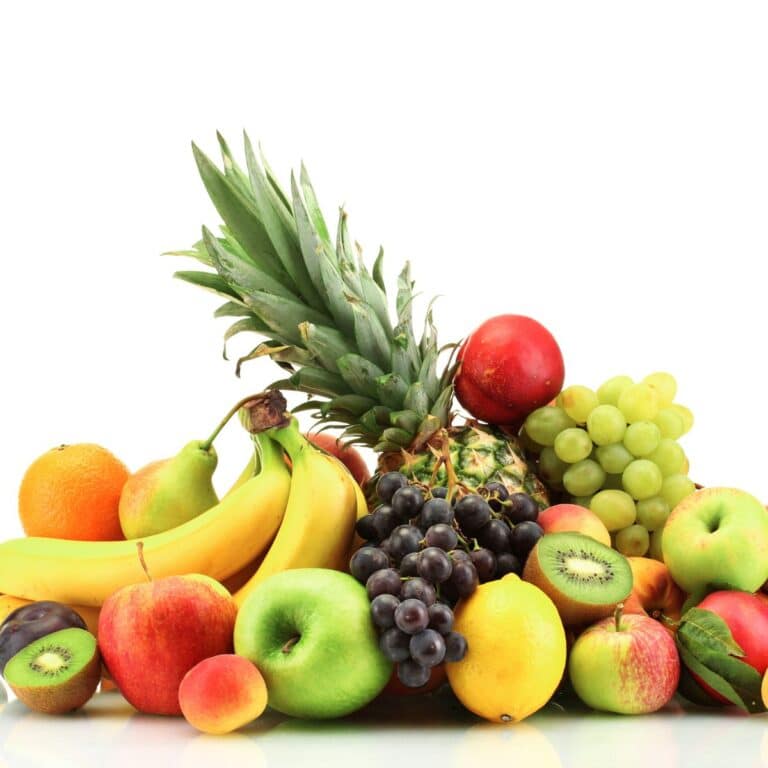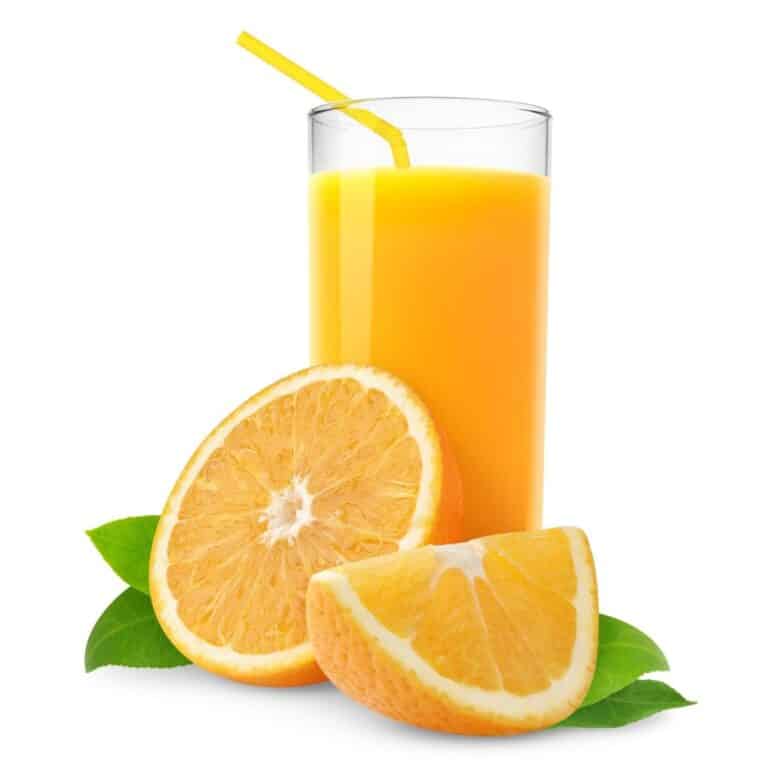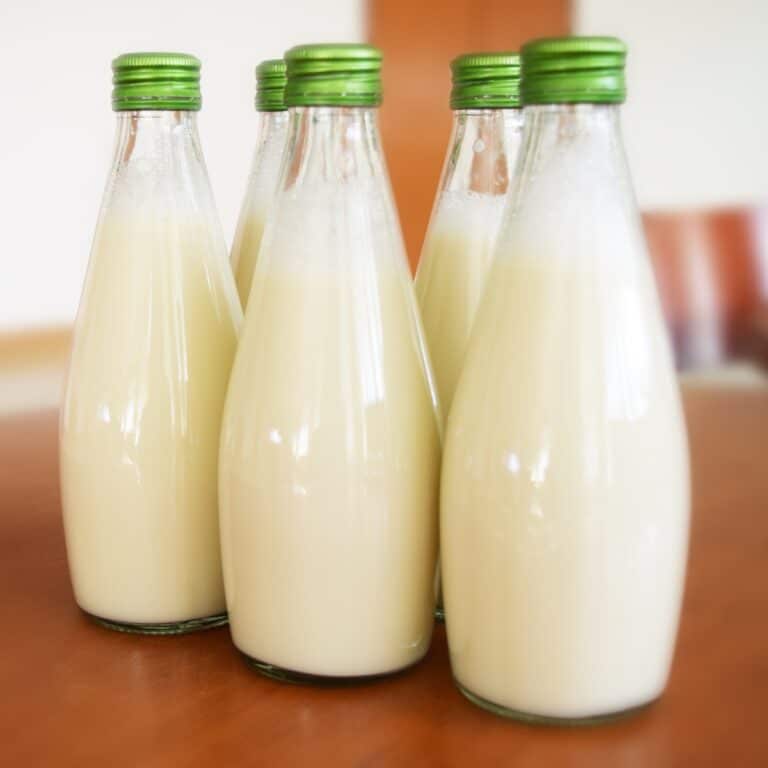Are Kidney Beans Good for Kidneys?
Kidney beans, those humble and versatile legumes commonly found in kitchen pantries, hold more than just a spot on your plate. Beyond their culinary appeal, kidney beans have an intriguing connection to kidney health as part of a well balanced diet.
In this article, we dig into the remarkable benefits of kidney beans for your kidneys. From their nutrient profile to their potential impact on renal function, you'll discover how these unassuming legumes can contribute to a healthier life – one bean at a time.
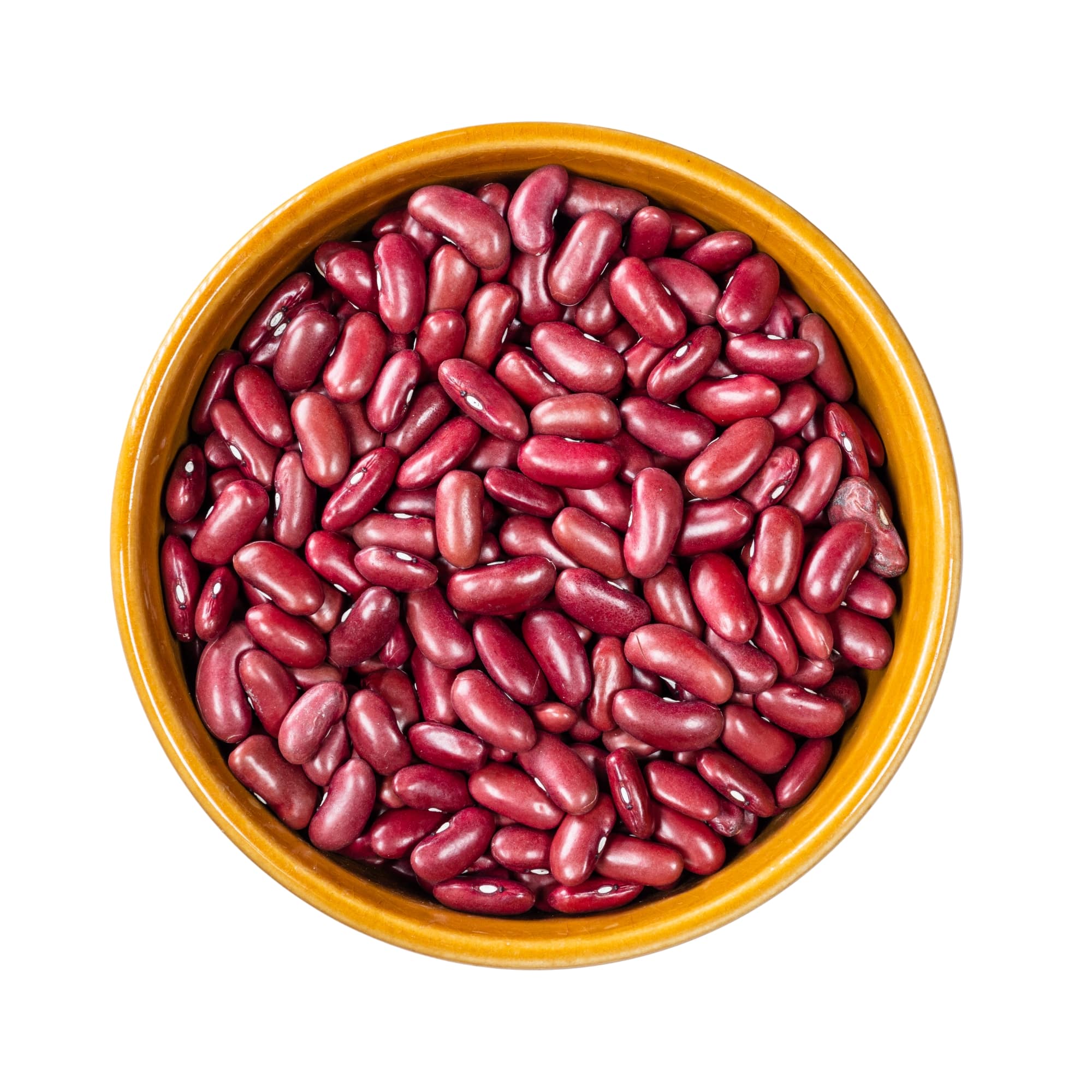
Jump to:
- Key Takeaways
- Understanding the Nutritional Value of Kidney Beans
- Role of Kidney Beans in Kidney Health
- Comparing Kidney Beans With Other Beans
- Phosphorus in Beans
- Health Benefits of Consuming Kidney Beans for Different Dialysis Patients
- The Importance of Protein in Kidney Beans
- The Impact of Carbs and Fibers in Kidney Beans
- Influence of Kidney Beans in Preventing Colon Cancer
- Potential Downsides and Toxicity of Kidney Beans
- Frequently Asked Questions
- Kidney Beans Can Be Good for your Kidneys
Key Takeaways
- Kidney beans are nutrient-dense, offering a balanced profile with 127 calories, 8.7 grams of protein, 22.8 grams of carbs, 6.4 grams of fiber, and minimal fats per 100 grams.
- They provide heart-healthy benefits, aiding in blood sugar management and weight control while showing potential in reducing colon cancer risk.
- Kidney beans support kidney health by serving as a lower-protein, low-sodium alternative and offering benefits in controlling blood sugar for those with Chronic Kidney Disease.
- In dialysis diets, kidney beans can replace animal protein, and their lower phosphorus content makes them valuable; however, individualized planning with a dietitian is crucial.
- Proper preparation can help reduce potassium intake, and kidney beans contain essential nutrients like folate, iron, and magnesium.
Understanding the Nutritional Value of Kidney Beans
You might be surprised at the impressive nutrient profile of kidney beans. They're packed with essential vitamins, minerals, and fiber, providing a wide array of health benefits.
However, it's also important to be aware of potential risks associated with their consumption.
For More Recipes and Ideas --->> Get Your Free Meals and Recipes That Are Perfect for Pre-Dialysis Diets, Pre-Dialysis with Diabetes, or Dialysis Diets.
Kidney Beans' Nutrient Profile
Kidney beans, scientifically known as Phaseolus vulgaris, are nutrient powerhouses that offer a wide array of health benefits. In a 3.5-ounce (100-gram) serving of boiled kidney beans, you'll find 127 calories, primarily derived from its rich carbohydrate content, making them an excellent source of energy.
These legumes are comprised of 67% water, contributing to their satisfying and hydrating qualities. Protein content is notable at 8.7 grams per 100 grams, making kidney beans a valuable plant-based protein source, suitable for vegetarians and vegans.
Carbohydrates, including 6.4 grams of dietary fiber, play a significant role in kidney beans. Fiber aids digestion, helps manage blood sugar levels, and supports heart health. With only 0.3 grams of sugar and 0.5 grams of fat, kidney beans are a low-fat, low-sugar food option, making them suitable for various dietary preferences.
Furthermore, kidney beans are a remarkable source of essential vitamins and minerals, including folate, iron, magnesium, and potassium, with high levels of antioxidants. These nutrients collectively contribute to kidney health, heart health, and overall well-being. Incorporating kidney beans into your diet can be a smart choice for maintaining a nutritious and balanced kidney disease plan.
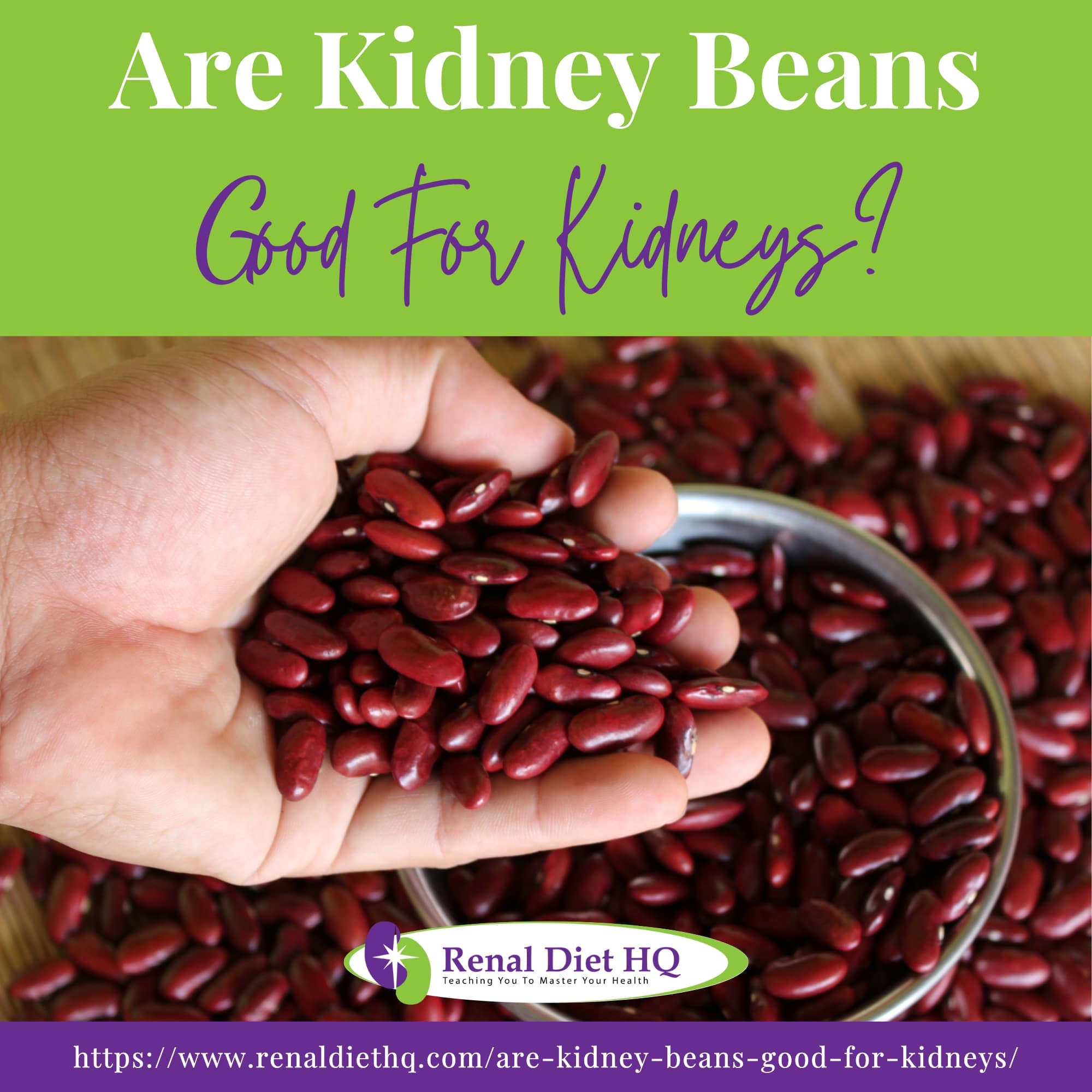
Health Benefits
Kidney beans offer a multitude of health benefits that make them a valuable addition to your diet. These legumes are packed with nutrients, serving as both a protein source and a vegetable. Incorporating just half a cup of kidney beans into your daily meals can significantly enhance your overall health.
One major advantage is their potential to improve heart health. Kidney beans, when used as a protein source, can replace higher-cholesterol meat options. This dietary shift can lead to reduced fat and saturated fat intake, ultimately lowering the risk of heart disease. Kidney beans are particularly heart-healthy due to their lower fat and saturated fat content while providing ample fiber and protein.
Moreover, kidney beans, like other common beans, demonstrate a protective effect against colon cancer. The non-digestible fiber in these beans regulates cell growth in the colon, reducing the risk of developing colon cancer.
In addition, kidney beans have a low glycemic index, stabilizing blood sugar levels and mitigating the effects of high-glycemic foods when consumed together. This is particularly beneficial for individuals looking to manage blood sugar effectively.
For those aiming for weight management, kidney beans are an excellent choice due to their high fiber content. Fiber promotes a feeling of fullness, reducing overeating, and studies suggest that including beans in a high-fiber diet can aid in weight loss.
Role of Kidney Beans in Kidney Health
You might be wondering how kidney beans actually affect your kidney health. They're not just named for their shape; they also provide significant nutritional benefits that can support kidney function.
In the next section, we'll look at these benefits and even discuss the role of kidney beans in the diet of dialysis patients.
Kidney Beans' Nutritional Impact
Kidney beans offer unique health benefits for individuals with Chronic Kidney Disease (CKD). These advantages are particularly relevant due to the name association, but they stem from the nutritional properties of kidney beans. For CKD patients, who often need to monitor their protein and nutrient intake carefully, kidney beans can be a valuable addition to their diet.
- Reduced Protein Burden: Kidney beans serve as a lower-protein alternative to animal sources, alleviating some strain on the kidneys by providing essential amino acids without excessive protein.
- Heart Health: Kidney beans can help manage hypertension, a common complication of CKD. Their low sodium and high potassium content support heart health by regulating blood pressure.
- Stabilizing Blood Sugar: The low glycemic index of kidney beans aids in controlling blood sugar levels, crucial for CKD patients, many of whom have diabetes.
- High Fiber Content: Kidney beans are rich in dietary fiber, promoting digestive health, reducing cholesterol levels, and helping with weight management, essential aspects for CKD management.
- Rich in Essential Nutrients: They provide valuable nutrients like folate and iron that CKD patients may lack due to dietary restrictions.
Incorporating kidney beans, when done in consultation with a healthcare provider or dietitian, can be a beneficial strategy to manage CKD effectively while enjoying delicious and versatile meals.
Kidney Beans and Dialysis
Kidney beans can play a valuable role in the dietary management of dialysis patients, but this should be a carefully planned and personalized endeavor, ideally in collaboration with a kidney dietitian. By working closely with a dietitian, dialysis patients can create a meal plan that safely incorporates kidney beans within their dietary restrictions.
One of the key benefits is the potential to use kidney beans as a protein substitute for meat. This can be particularly beneficial as dialysis patients often need to control their protein intake due to impaired kidney function. Kidney beans offer plant-based protein while being lower in phosphorus, which is a critical consideration for those undergoing dialysis.
However, it's important to remember that the suitability of kidney beans can vary from patient to patient based on their unique dietary needs and medical condition. Thus, creating an individualized meal plan with the guidance of a kidney dietitian ensures that kidney beans are incorporated safely and effectively, helping patients maintain proper nutrition while undergoing dialysis.
Comparing Kidney Beans With Other Beans
Beans are a staple in diets worldwide, offering a versatile source of nutrition and flavor. Among the multitude of bean varieties, kidney beans stand out for their unique taste and texture.
In this section, we'll explore how kidney beans compare to other types of beans in terms of taste, nutritional profiles, and culinary applications. Understanding these differences can help you make informed choices and diversify your diet, adding both flavor and health benefits to your meals.
Nutritional Differences
When comparing the nutritional profiles of kidney beans, chickpeas, pinto beans, peas, and black beans, several differences emerge, as summarized in the table below based on a 100-gram serving of each:
| Nutrient (per 100g) | Kidney Beans | Chickpeas | Pinto Beans | Peas | Black Beans |
| Calories | 127 | 686kJ | 143kcal | 118kcal | 55kcal |
| Protein | 8.7g | 8.86g | 9.01g | 8.34g | 3.94g |
| Carbohydrates | 22.8g | 27.4g | 26.2g | 21.1g | 15.8g |
| Sugar | 0.3g | 4.8g | 0.34g | 2.9g | N/A |
| Fiber | 6.4g | 7.6g | 9g | 8.3g | 5.5g |
| Total Fat | 0.5g | 2.59g | 0.65g | 0.39g | 0.79g |
Each of these beans offers a unique nutritional profile. Kidney beans are a balanced source of protein and fiber with moderate calories. Chickpeas are protein-rich but contain more calories and sugars. Pinto beans are high in protein and fiber. Peas have a lower protein content but are rich in fiber and slightly lower in calories. Black beans, while lower in protein and fiber, provide some calcium and iron. The choice among these beans can be tailored to individual dietary preferences and nutritional needs.
Preparation and Potassium Content
Potassium is a crucial electrolyte that plays a vital role in maintaining heart and muscle function. In Chronic Kidney Disease, managing potassium intake is essential, as impaired kidneys may struggle to regulate potassium levels in the blood. High blood potassium levels, known as hyperkalemia, can be life-threatening for CKD patients.
When comparing the potassium content in various beans, kidney beans and pinto beans have relatively higher potassium levels (405mg and 436mg per 100g, respectively). Chickpeas and peas contain lower potassium levels (291mg and 362mg, respectively) in the same serving size.
For individuals with CKD, it's advisable to choose lower-potassium legumes like chickpeas and peas, as part of a kidney-friendly diet. Additionally, proper preparation methods, such as soaking and rinsing beans before cooking, can help reduce their potassium content.
This can make a significant difference in managing potassium intake for CKD patients while still enjoying the nutritional benefits of beans. Consulting a dietitian for personalized guidance is crucial to maintain a balanced diet while managing potassium levels effectively.
Phosphorus in Beans
Phosphorus is an essential mineral that, in normal kidney function, helps maintain bone health, muscle function, and pH balance. However, in Chronic Kidney Disease, the kidneys may struggle to filter excess phosphorus from the blood. Hence, limiting phosphorus intake is crucial to prevent complications.
When comparing phosphorus content in different beans, chickpeas contain the highest phosphorus levels (168mg per 100g), followed by pinto beans (147mg) and kidney beans (138mg). In contrast, peas have significantly lower phosphorus content (99mg).
For CKD patients, managing phosphorus intake is vital to prevent complications like bone and cardiovascular issues. Lower-phosphorus legumes like peas can be a preferred choice in a kidney-friendly diet.
Additionally, proper food preparation techniques, like soaking and rinsing beans, can help reduce their phosphorus content. Consultation with a healthcare provider or dietitian is essential to create a balanced diet that aligns with phosphorus restrictions while still enjoying the nutritional benefits of beans.
Health Benefits of Consuming Kidney Beans for Different Dialysis Patients
If you're a dialysis patient, you may wonder about the benefits of consuming kidney beans. Whether you're undergoing hemodialysis or peritoneal dialysis, kidney beans can offer specific health advantages.
Let's examine how these beans can enhance your well-being in each of these dialysis scenarios.
Kidney Beans for Hemodialysis
Kidney beans offer unique benefits to hemodialysis patients, who often need to navigate dietary restrictions and ensure optimal nutrition. These benefits include:
- Protein Source: Hemodialysis patients require sufficient protein intake to counteract the protein loss during dialysis. Kidney beans provide a plant-based protein source, helping meet protein needs while being lower in phosphorus compared to animal protein.
- Low in Sodium: Hemodialysis patients often need to limit sodium intake to manage blood pressure and fluid balance. Kidney beans are naturally low in sodium, supporting these dietary restrictions.
- Fiber-Rich: The fiber content aids digestive health and can help regulate blood sugar levels, beneficial for individuals with diabetes often associated with kidney disease.
- Rich in Vitamins and Minerals: Kidney beans offer essential nutrients like folate, iron, and magnesium, addressing potential deficiencies often seen in hemodialysis patients.
Including kidney beans in the diet, under the guidance of a healthcare provider or dietitian, can contribute to a well-rounded, flavorful, and nutritionally sound meal plan for hemodialysis patients.
Benefits for Peritoneal Dialysis
Kidney beans offer several advantages to peritoneal dialysis (PD) patients, who must closely manage their diet due to the unique demands of this dialysis method:
- Protein Source: PD patients need an adequate protein intake to compensate for protein loss during treatment. Kidney beans provide a plant-based protein option, helping meet these protein needs without the phosphorus concerns associated with animal proteins.
- Fiber Content: The fiber in kidney beans supports digestive health, which can be beneficial for PD patients who may experience gastrointestinal issues due to their condition or dietary restrictions.
- Nutrient Density: Kidney beans are rich in essential nutrients like folate, iron, and magnesium. PD patients may have specific nutritional requirements, and kidney beans can help address potential deficiencies often associated with kidney disease.
- Versatile Culinary Uses: Kidney beans can be incorporated into various dishes, adding flavor and variety to the PD patient's diet.
Including kidney beans in a PD diet, under the guidance of a healthcare provider or dietitian, can enhance nutritional variety and overall dietary satisfaction for these patients.
The Importance of Protein in Kidney Beans
You mightn't be aware of the significant protein content in kidney beans. When compared to animal protein, the plant protein found in these beans offers various health benefits.
Let's analyze how this powerhouse nutrient can contribute to your kidney health.
Protein Content Analysis
Kidney beans are renowned for their substantial protein content, providing 8.67 grams of protein per 100 grams. This makes them an excellent source of plant-based protein, making them particularly valuable for vegetarians, vegans, and those looking to reduce their reliance on animal proteins.
Proteins are the building blocks of life, essential for various bodily functions, including tissue repair, enzyme production, and immune system support. Kidney beans' protein profile includes essential amino acids, making it a well-rounded protein source.
Furthermore, kidney beans' protein content contributes to satiety, making them a valuable addition to weight management and appetite control. They are not only protein-rich but also offer the advantages of being low in fat and a good source of dietary fiber, promoting overall health and well-being. Incorporating kidney beans into your diet can be a wise choice for meeting your protein needs while enjoying their versatility in various dishes.
Comparing Animal and Plant Protein
When examining the proteins in your diet, it's important to understand the differences between animal and plant proteins, notably those found in kidney beans. Kidney beans provide a valuable source of plant-based protein, vital for maintaining overall health.
Consider the table below:
| Animal Protein | Plant Protein | |
| Essential Amino Acids | Usually contains all | May lack one or more |
| Fiber | Lacks fiber | High in fiber |
| Fats | High in saturated fats | Low in saturated fats & high in healthy fats |
Animal proteins often contain all essential amino acids, while plant proteins like kidney beans may lack one or more. However, they're high in fiber, unlike animal proteins. Additionally, kidney beans are low in saturated fats and high in healthy fats, making them a beneficial addition to your diet.
The Impact of Carbs and Fibers in Kidney Beans
In this section, we delve into the carbohydrate and fiber content of kidney beans and their significance in our diets. Kidney beans are not only rich in protein but also offer essential carbohydrates and fiber, which play pivotal roles in maintaining energy levels, regulating blood sugar, and promoting digestive health.
Explore how these nutrients in kidney beans contribute to overall well-being and learn how to make the most of their nutritional benefits.
Carbs Impact on Kidneys
Carbohydrates play a significant role in kidney health. Kidney beans, with 22.8 grams of carbohydrates per 100 grams, contain both simple and complex carbs.
Monitoring carbohydrate intake is crucial for those with kidney issues, as excessive carbohydrate consumption can lead to blood sugar spikes, which may worsen kidney damage. High blood sugar levels can contribute to kidney stress and complications.
Additionally, excessive carbohydrate intake can lead to weight gain, high blood pressure, and insulin resistance, all of which are risk factors for kidney disease.
Therefore, it's essential for individuals with kidney concerns to manage their carbohydrate intake and choose complex, low-glycemic carbohydrates to support overall kidney health and minimize the risk of associated complications. Consulting a healthcare provider or dietitian for personalized guidance is advisable.
Kidney Beans Fiber Benefits
The 7.6 grams of dietary fiber found in kidney beans per 100 grams not only contribute to their satiety but also hold remarkable health benefits. Fiber is essential for digestive health as it aids regular bowel movements and prevents constipation. In kidney disease, particularly, maintaining healthy digestion is crucial to minimize waste buildup and reduce strain on the kidneys.
Fiber also plays a vital role in managing blood sugar levels. It slows the absorption of sugar, helping to prevent spikes and crashes. This is particularly important for individuals with kidney concerns, as diabetes is a common comorbidity.
Moreover, dietary fiber can help with weight management by promoting a feeling of fullness, potentially reducing overeating, which is important for overall health and for those with kidney issues, who often need to monitor their diet and calorie intake closely. Including kidney beans in the diet can be an excellent strategy to harness these fiber-related benefits while enjoying delicious and versatile meals.
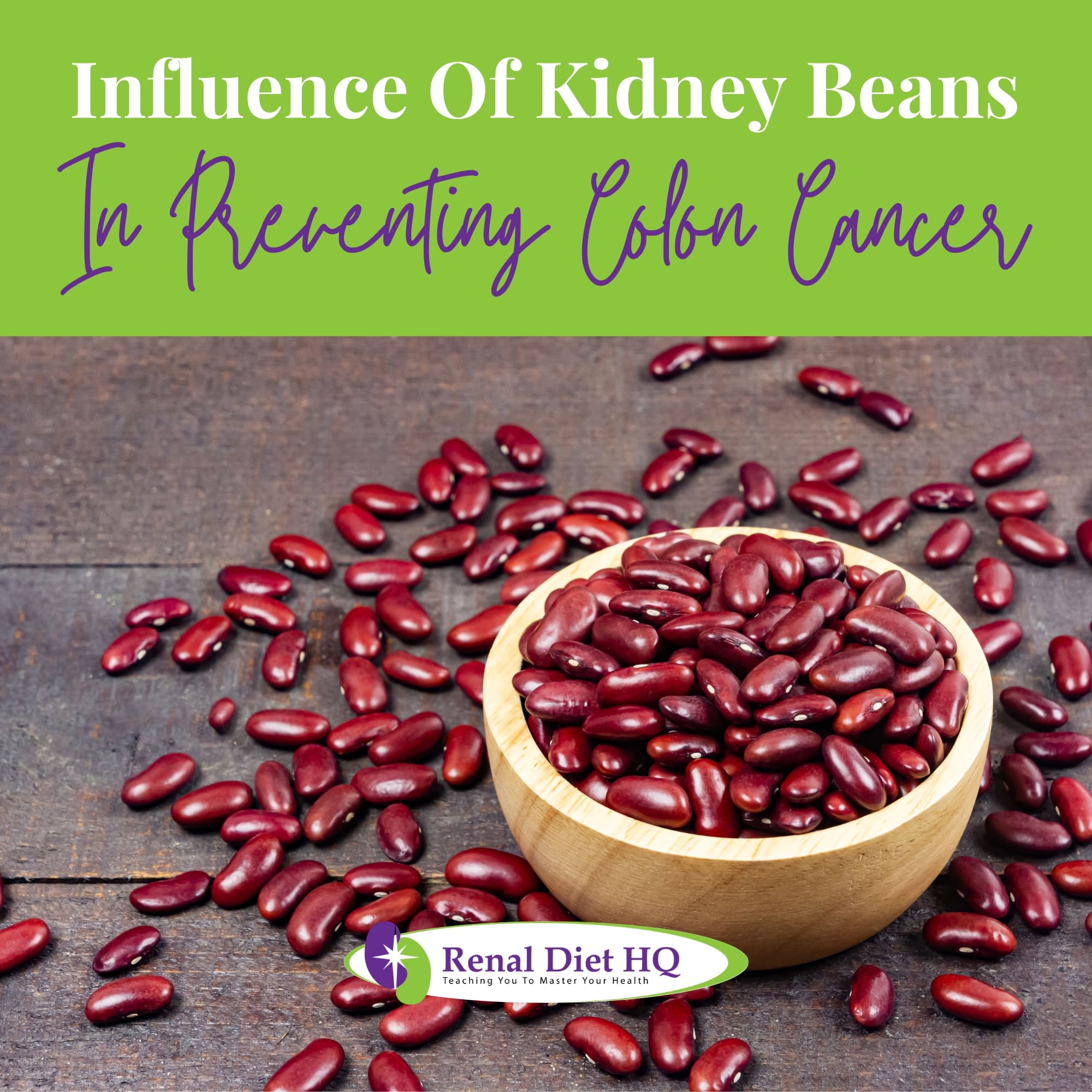
Influence of Kidney Beans in Preventing Colon Cancer
In this section, we explore the fascinating link between kidney beans and colon cancer prevention. Kidney beans, beyond their culinary appeal, offer a potential shield against the development of colon cancer.
We'll delve into the scientific insights and nutritional elements that make kidney beans a valuable addition to your diet for promoting colon health and reducing the risk of this prevalent form of cancer.
Beans' Nutrients and Anticancer Effects
Kidney beans possess several components and nutrients that offer potential anti-colon cancer benefits. Firstly, their high fiber content aids in colon health. Dietary fiber can promote regular bowel movements, reducing the time potential carcinogens spend in contact with the colon lining.
Moreover, the phytonutrients and antioxidants in kidney beans, such as flavonoids and phenolic compounds, exhibit anti-inflammatory and anti-carcinogenic properties. Folate, a B-vitamin found in kidney beans, supports DNA repair and synthesis, potentially reducing the risk of DNA mutations that can lead to cancer.
Additionally, the resistant starch content in kidney beans can ferment in the colon, producing short-chain fatty acids that may inhibit the growth of cancer cells. These combined elements make kidney beans a valuable dietary addition for colon cancer prevention.
Fibers in Colon Health
Dietary fiber plays a pivotal role in colon health, and kidney beans are a noteworthy contributor to this. The fiber in kidney beans aids colon health by promoting regular bowel movements and preventing constipation.
More significantly, fiber acts as a prebiotic, nourishing the beneficial gut bacteria that ferment it, producing short-chain fatty acids (SCFAs). SCFAs, such as butyrate, play a vital role in colon health by reducing inflammation, providing an energy source for colon cells, and potentially inhibiting the growth of cancer cells.
The soluble fiber in kidney beans can also help lower cholesterol levels, indirectly benefiting heart and colon health. Incorporating kidney beans into your diet can enhance fiber intake, supporting overall colon health and potentially reducing the risk of colon-related diseases, including cancer.
Here's a quick table to illustrate the benefits of fiber:
| Fiber Source | Colon Health Benefit | Colon Cancer Prevention |
| Kidney Beans | Promotes regular bowel movements | Regulates use of sugars |
| Whole Grains | Reduces risk of diverticular disease | Helps control appetite |
| Fruits & Vegetables | Aids in digestion | Lowers risk of colorectal cancer |
Potential Downsides and Toxicity of Kidney Beans
While kidney beans offer numerous health benefits, it's important to be aware of their potential downsides and toxicity for people with kidney disease.
If not cooked properly, they can contain a natural toxin that may cause severe digestive discomfort.
In the following sections, we'll examine these issues in depth so you can safely incorporate kidney beans into your diet.
Kidney Beans Toxicity
For renal patients, kidney beans offer numerous health benefits, but certain precautions should be taken to ensure their safe consumption:
- Phytohaemagglutinin (PHA) Toxin: Kidney beans contain the highest levels of PHA toxin among common beans. This natural protein can cause gastrointestinal distress, including nausea, vomiting, and diarrhea. Renal patients should be aware of this toxin and ensure thorough cooking of kidney beans. Canned beans are safe due to the canning process, but slow cookers may not heat beans adequately to destroy the toxin.
- Gas Production: Kidney beans, like many legumes, can cause gas, which might be uncomfortable for renal patients. Using the hot soak method when cooking dried kidney beans can help reduce gas-producing compounds.
Renal patients should exercise caution, ensure proper cooking, and monitor portion sizes when incorporating kidney beans into their diets. Consulting with a healthcare provider or dietitian is advisable to create a safe and nutritious meal plan.
Handling Digestive Discomfort
Managing digestive discomfort caused by Phytohaemagglutinin (PHA) in kidney beans is essential. Here are some steps to minimize the risk and alleviate symptoms:
- Thorough Cooking: Ensure kidney beans are cooked properly. PHA is destroyed by high temperatures, so boiling kidney beans for at least 10 minutes can neutralize the toxin. Do not use slow cookers, as they may not reach the necessary temperature to deactivate PHA.
- Use Canned Beans: Canned kidney beans are pre-cooked and safe to consume since the canning process eliminates PHA. Opt for canned beans when possible.
- Soaking: Soaking dried kidney beans before cooking can help reduce the toxin content. Discard the soaking water, and cook the beans in fresh water.
- Proper Portion Control: Avoid overindulging in kidney beans to reduce the risk of digestive discomfort, including nausea, vomiting, and diarrhea.
Taking these precautions and maintaining proper cooking techniques can help mitigate the risk of PHA-related digestive discomfort while still enjoying the nutritional benefits of kidney beans.
Frequently Asked Questions
Kidney beans can be incorporated into a kidney-friendly diet in various ways. They are versatile and provide plant-based protein, making them a valuable addition for renal patients. Here are some ideas:
Salads: Add boiled kidney beans to kidney-friendly salads with low-sodium dressings.
Stews and Soups: Use kidney beans in soups and stews alongside kidney-friendly vegetables and lean proteins.
Burgers: Create kidney-friendly veggie burgers using kidney beans, whole grains, and kidney-safe seasonings.
Dips: Blend kidney beans with kidney-friendly herbs and spices to make a kidney-friendly hummus or dip.
Sides: Serve kidney beans as a kidney-friendly side dish, seasoned with kidney-healthy herbs and spices.
Always consider your specific dietary restrictions and consult with a healthcare provider or renal dietitian to ensure kidney beans are integrated appropriately into your individual kidney-friendly diet.
Kidney beans are generally safe for individuals with kidney stones. They are a good source of plant-based protein and fiber, and they do not significantly contribute to the formation of kidney stones. However, it's crucial for individuals with a history of kidney stones to maintain proper hydration and a balanced diet, as excessive consumption of any food can potentially contribute to stone formation. Always consult with a healthcare provider or urologist to determine your specific dietary needs and whether kidney beans are suitable for your individual condition.
Kidney beans can be beneficial for individuals with diabetes. They are a low-glycemic index food, meaning they have a gradual impact on blood sugar levels. The fiber in kidney beans slows the absorption of sugar, helping to prevent spikes in blood sugar. Additionally, kidney beans can be a valuable source of plant-based protein, supporting blood sugar management. However, portion control is essential, and individuals with diabetes should monitor their carbohydrate intake to fit kidney beans into their overall meal plan while consulting with a healthcare provider or dietitian.
The appropriate serving size of kidney beans for optimal kidney health varies depending on individual dietary needs and kidney function. In general, a portion of about ½ cup (roughly 120 grams) of cooked kidney beans can be a suitable serving for most people. However, it's essential to consult with a healthcare provider or renal dietitian to determine the right serving size based on your specific kidney health and dietary requirements, as it can vary for individuals with different levels of kidney function and dietary restrictions.
Kidney Beans Can Be Good for your Kidneys
Kidney beans are a nutritional powerhouse, rich in essential vitamins, minerals, and fiber, providing a wide range of health benefits; however, their consumption should be mindful of potential risks, such as toxicity from the PHA toxin, which can cause gastrointestinal discomfort if not cooked properly.
Kidney beans offer heart-healthy advantages, including reduced cholesterol intake and potential protection against colon cancer, as well as benefits for kidney health by reducing protein burden, supporting heart health, and stabilizing blood sugar, making them suitable for individuals with Chronic Kidney Disease.
Moreover, they can be a valuable protein source for dialysis patients but require careful planning and personalized guidance from healthcare providers or dietitians. Additionally, kidney beans can be compared to other beans based on nutritional profiles, making them a versatile choice for various dietary preferences.




